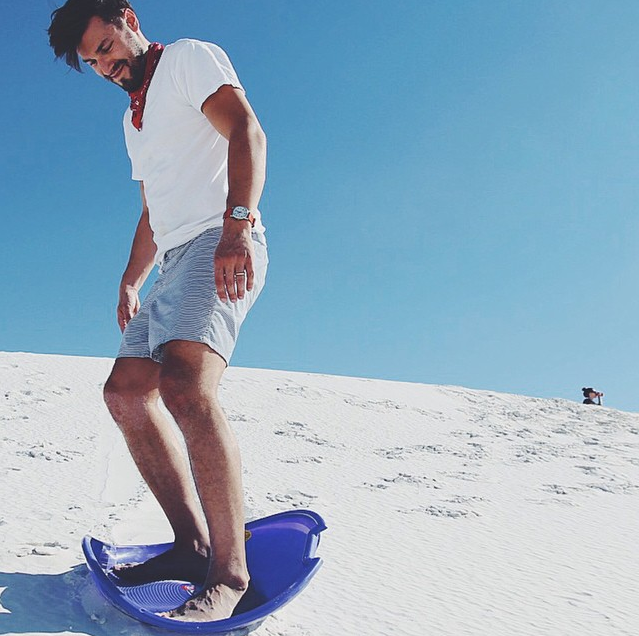Brad Pearson '06, Southwest Magazine
At the time of this interview, Brad Pearson ’06 was managing editor of Southwest: The Magazine.

Can you tell us how you got to where you are now?
After graduating from Saint Joseph’s in 2006, I moved down to Washington, D.C., with the intention of going to graduate school. Instead, I got a job writing for community weeklies, which ended up being a great decision. I was an international relations major at SJU, but I minored in English and focused on journalism. By not going to grad school, I had to become a reporter really quickly. At 22 I had to teach myself if the nut graph was working or if the syntax of my story made sense. My then girlfriend (and now wife) got a job in Dallas, so we moved down here. I got a job writing for the city of Dallas magazine called D Magazine, for which I wrote for three years on and off. I was an online writer, healthcare editor, senior business editor and front-of-book editor. When I left for the last time last year, I came to Southwest Magazine where I am the managing editor.
What does the managing editor do?
I’m not involved in magazine production. I edit personal essays, staff features and the front-of-book pages, including the “Eat, Drink” section. I still get to write some features as well, but they’re mostly small. I write cultural pieces but edit the serious stuff. As an editor, I see a mix of everything you could imagine going into a magazine.
How do you gauge the type of material people want to read while traveling on a plane?
Well, for starters, we can’t run stories about people being murdered or any type of death. That doesn’t necessarily mean we shy away from stories that are sad or depressing because that is still a human emotion often conveyed through a good story. We really like to write features that we feel like people should read, whether they’re on an airplane or not. One of the perks for working at an airline magazine is that we don’t have to rely as heavily on cover lines because we’re not forcing people to buy our magazine. It’s rare that a magazine has such a captive audience, but because it’s distributed on a plane, our readers can’t go anywhere.
Working for an airline magazine, do you get the opportunity to travel often?
In 2014 I was granted the Marshall Memorial Fellowship, where I got the opportunity to travel through Europe. I learned about the differences between the European and United States press. It puts into perspective how much more freedom we have in the United States press compared to publications in Europe. But for the magazine, I travel less than you would think. In the year I’ve been working here, I traveled for four stories. I always try to hit a few birds with one stone when I travel. For example, every December we publish a feature called “Spirit Guide,” so whenever I travel I frequent local bars and restaurants to find great cocktails to include in the feature. Being a top editor, the magazine can’t really afford to have me absent for a long period of time, so I always make good use of my time away.
Do you freelance at all? If so, how do you balance freelancing with your staff position?
Because I only write a few features for Southwest, I like to do some freelancing on the side. Having a staff position while freelancing is hard. I do a lot of research at night and on weekends. The best part about freelancing is that you can email an editor, say “this is my idea for a story” and get your foot in the door. This is an industry about connections, and by freelancing and reaching out to editors, you can meet people that you will want to work with for the rest of your life.
What’s your biggest accomplishment?
I wrote a piece for Philadelphia Magazine last year about the time I was kidnapped outside Saint Joseph’s campus. I worked on and off for about nine years, making sure the story was as perfect as it could be. I was lucky enough to have someone in my household, my wife, read every draft and give her objective opinion. In the last year of writing, I spent every single day thinking of my kidnapping, the reporting of it, making the sentences factual. I had to visit my kidnappers in prison. When this is haunting you every single day, the end product is that much sweeter. You know how much work you put into it. All writers are narcissists on some level, and it felt really nice to have a lot of people read your story, even when it’s about the worst moment of your life.
— Madeline Morr '16